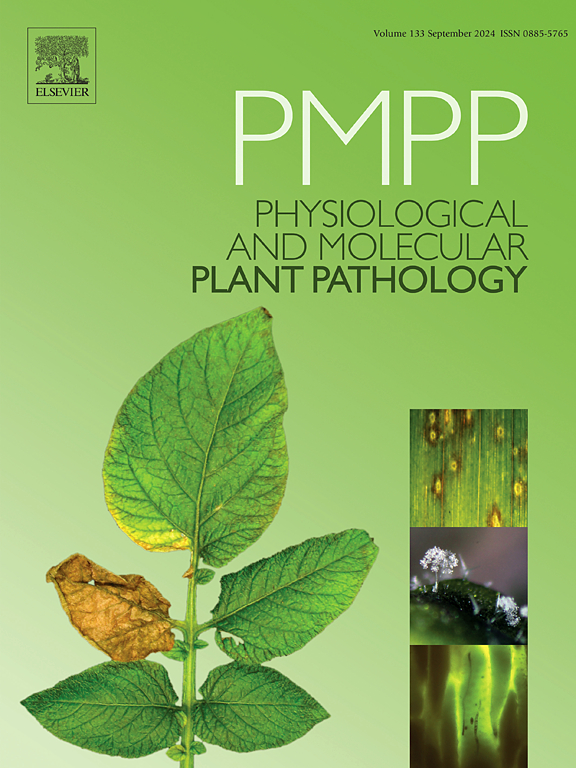Nutrient therapies: Boosting plant immunity for a sustainable future
IF 2.8
3区 农林科学
Q2 PLANT SCIENCES
引用次数: 0
Abstract
Abiotic conditions like drought, salt, and severe temperatures, as well as biotic stresses like fungal, bacterial, and viral infections, are progressively reducing plant productivity. The physiological processes of plants are disturbed, immunological signaling is impaired, and infection susceptibility is increased because of these stresses. Recent advances highlight the significant role of plant nutrition in enhancing both innate immunity and stress resilience. Nutrients influence plant defense mechanisms through multiple pathways: strengthening physical barriers like cell walls and cuticles, modulating antioxidant enzyme systems to detoxify reactive oxygen species (ROS), regulating hormonal signals such as salicylic acid (SA), jasmonic acid (JA), and abscisic acid (ABA), and promoting the synthesis of secondary metabolites including phytoalexins and phenolics. Macro- and micronutrientsincluding nitrogen (N), phosphorus (P), potassium (K), calcium (Ca), magnesium (Mg), sulfur (S), zinc (Zn), iron (Fe), and selenium (Se)serve not only as essential metabolic components but also as signaling agents that trigger or prime defense responses. Moreover, certain nutrients exhibit direct biocidal activity or act as elicitors even in the absence of pathogens. The rhizosphere microbiome is influenced by nutrients, according to emerging research. Nutrients promote interactions with beneficial microorganisms, such as PGPRs and mycorrhizae, which further enhance immunity. A recentreview on nutrient-induced resistance is highlighted in this review, which also highlights nutrient management as a long-term substitute for chemical pesticides. Integrating nutritional techniques into agricultural production systems can improve plant health, increase yield stability, and promote ecologically responsible agriculture, particularly in the face of climate change and soil degradation.
营养疗法:为可持续的未来增强植物免疫力
干旱、盐和高温等非生物条件,以及真菌、细菌和病毒感染等生物压力,正在逐渐降低植物的生产力。由于这些胁迫,植物的生理过程受到干扰,免疫信号被破坏,感染易感性增加。最近的研究进展强调了植物营养在增强先天免疫和应激恢复能力方面的重要作用。营养物质通过多种途径影响植物的防御机制:增强细胞壁和角质层等物理屏障,调节抗氧化酶系统解毒活性氧(ROS),调节水杨酸(SA)、茉莉酸(JA)和脱落酸(ABA)等激素信号,促进次生代谢物(包括植物抗毒素和酚类物质)的合成。宏量营养素和微量营养素,包括氮(N)、磷(P)、钾(K)、钙(Ca)、镁(Mg)、硫(S)、锌(Zn)、铁(Fe)和硒(Se),不仅作为必需的代谢成分,而且作为触发或启动防御反应的信号剂。此外,某些营养物质甚至在没有病原体的情况下也表现出直接的生物杀灭活性或作为激发子。根据最新的研究,根际微生物群受到营养物质的影响。营养物质促进与有益微生物的相互作用,如pgpr和菌根,从而进一步增强免疫力。本文综述了近年来营养诱导抗性的研究进展,并强调了营养管理作为化学农药的长期替代品。将营养技术纳入农业生产系统可以改善植物健康,提高产量稳定性,促进对生态负责的农业,特别是在气候变化和土壤退化的情况下。
本文章由计算机程序翻译,如有差异,请以英文原文为准。
求助全文
约1分钟内获得全文
求助全文
来源期刊
CiteScore
4.30
自引率
7.40%
发文量
130
审稿时长
38 days
期刊介绍:
Physiological and Molecular Plant Pathology provides an International forum for original research papers, reviews, and commentaries on all aspects of the molecular biology, biochemistry, physiology, histology and cytology, genetics and evolution of plant-microbe interactions.
Papers on all kinds of infective pathogen, including viruses, prokaryotes, fungi, and nematodes, as well as mutualistic organisms such as Rhizobium and mycorrhyzal fungi, are acceptable as long as they have a bearing on the interaction between pathogen and plant.

 求助内容:
求助内容: 应助结果提醒方式:
应助结果提醒方式:


